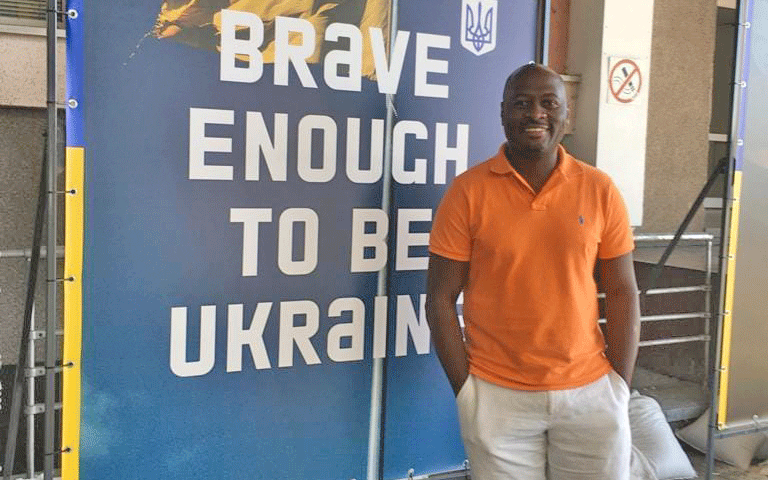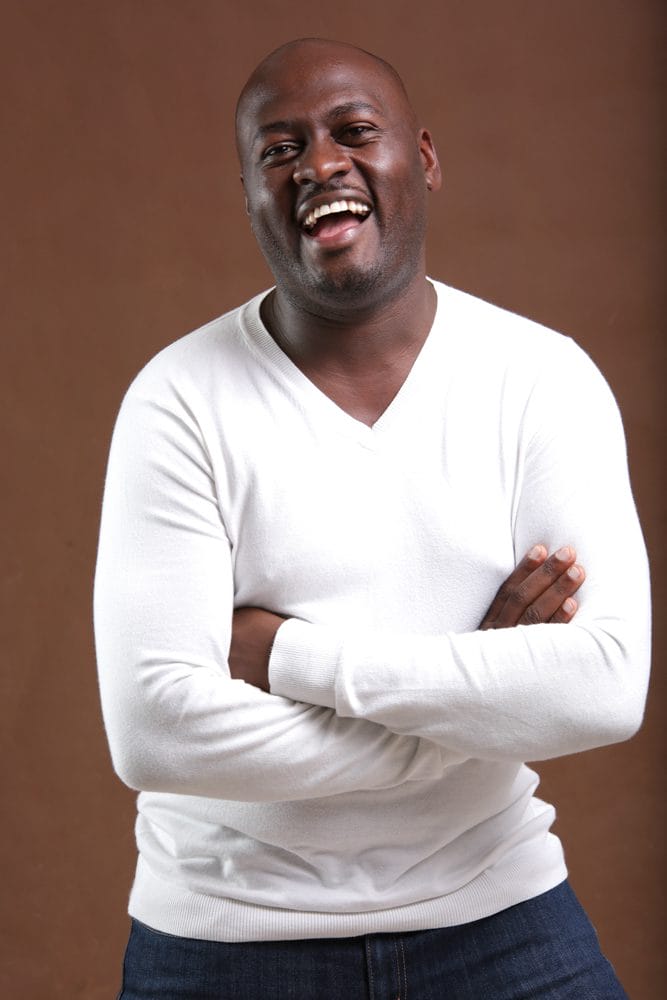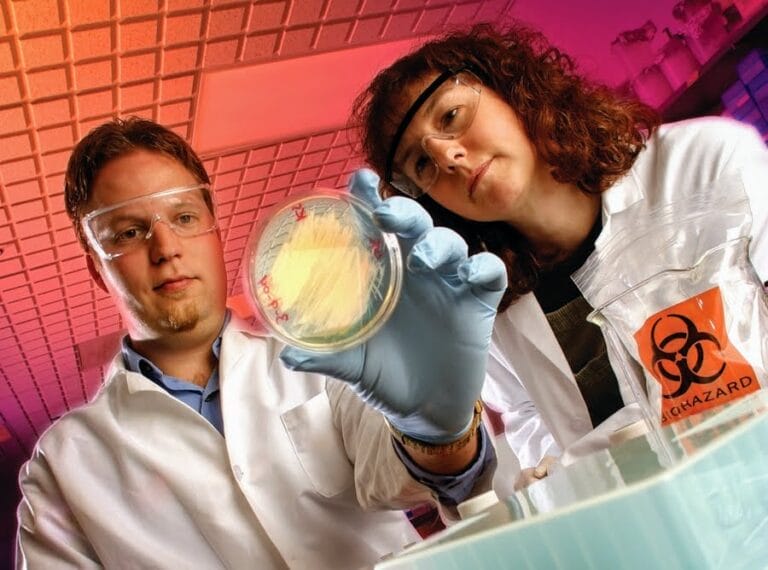
Health informatics graduate uses skills to benefit international humanitarian efforts
Dr. Sammy K. Ngichabe had 15 years of international medical experience and held a medical post as an international civil servant when during the height of the pandemic, he decided to go back to school. With his background in information technology (IT) and clinical work in impoverished areas, Sammy knew that if he learned to improve medical systems and processes, he could make a difference in global and maternal healthcare.
He’s already on his way. In July 2020 he was part of a United Nations medical team that received an award for innovative use of data during the COVID 19 emergency response aimed at streamlining operations and improving health and safety.
His online Master of Science in Clinical & Health Informatics from the University of Wisconsin–Madison gives him knowledge and confidence to continue pursuing his dreams. “My ultimate goal is to improve health care outcomes using information technology,” he says.
Regional work to Improve health care
Sammy, 40, was born in Kenya, raised in the belly of the city, Nairobi. His mother was a headmistress while his late dad was a virologist (PhD). They eagerly supported his education and by the end of high school his grades pointed him towards being a scientist.

After high school, Sammy enrolled for a diploma course in IT at Strathmore University in Nairobi where he designed a hospital appointment booking application using simple coding software.
After successfully completing his diploma, he couldn’t shake off his interest in science. He did some soul searching, enrolled to study medicine and ended up with two medical degrees, a Bachelor of Medicine and Surgery from University of Nairobi and a master’s degree in Obstetrics and Gynecology from the Aga Khan University Hospital: Nairobi.
He started making a difference in this field as the head of obstetrics and gynecology at the Nairobi Women’s Hospital and as a volunteer surgeon at the Kenya Red Cross.
At the Nairobi Women’s hospital, Sammy dedicated himself to improving operations and standards. He introduced laparoscopic procedures for both diagnostic and therapeutic procedures, streamlined prenatal/postnatal clinics, introduced electronic fetal monitoring, and educated Kenyans on reproductive health matters through radio shows.
“We also improved privacy and confidentiality. When I first came to the hospital, women were giving birth right next to each other,” he says. “We partitioned off the floors and made sure each woman had her own private space during clinic visits and delivery.”
At the Kenya Red Cross, Sammy worked in an operating room in the middle of the dessert in Dadaab refugee camps near the Somali border. He performed dozens of successful surgeries, life-saving procedures, fertility restorations and genital mutilation reconstructions.
In addition to his master’s in clinical and health Informatics, Sammy holds a certification in artificial intelligence (AI) from the University of Oxford, which rekindled his interest in health care technology.
He has leveraged his medical experience and IT with a touch of AI to provide strategic direction for international medical teams. As part of a United Nations strategic leadership team, he helped develop and implement policies benefiting the health, safety and wellbeing of employees at the agency during the COVID 19 pandemic. He also participated in an interagency bootcamp to improve efficiencies and patient health care using digital questionnaires and AI.
Health informatics degree addresses issues in Ukraine
Sammy learned of the UW–Madison online MS in Clinical & Health Informatics through a Google search. He was looking to gain additional IT education while working from home during the start of the pandemic.

“The Wisconsin program in health informatics seemed so aligned with what I was doing,” he says. “It helped me align health care needs for international operations. A large percentage of what I learned in Wisconsin I have put to work.”
In the 30-credit, fully online health informatics master’s program, students learn how to use data management and design to solve challenging problems across the health care industry. The program integrates electronic health record analysis, database design, clinical operational management, health modeling, change management and health care data security. It supplements existing health care expertise and it enhances analytical and management skills.
The program was designed with industry demands in mind, and Sammy found he could directly apply what he learned. For instance, he designed and implemented a risk assessment screening tool for pregnant women serving in high-risk areas which informed their care for optimal maternal health outcomes. More than 700 women have been screened through this system since 2020.He has presented the project to UN teams at international conferences.
Recently, Sammy put his new knowledge to the test in Ukraine.
He was part of a United Nations team sent to evaluate medical systems and health supports and devise ways to link international agency operations with medical services. The team visited hospitals in the east, west and south of Ukraine, covering most parts of the country by roads during rigorous days.
“As I was working to share the findings and plan health care strategies, the UW coursework in health informatics informed this mission,” he says. “Ukraine is a beautiful country with very social and hospitable people. We, the medical team, are glad to be of assistance to them during this difficult time.”
Sammy will return to Ukraine later in the year to follow up on recommendations made by his team.
Improving health care through IT

Sammy’s long-term goals include improving health care globally.
“The current technology in use needs continuous improvement, particularly in developing countries. New or improved systems would be a game changer there. I have many viable proposals in mind,” he says, with a smile.
Following in his parents’ footsteps along with his number one cheerleader and supportive wife Ms Claire Nyar- Akinyi,(PMP), Sammy is optimistic and has hope for the future. He learned through his cycling hobby that to keep your balance, you must keep moving and evolve. He spends some of his free time cycling with his teammates as part of his fitness and wellness plan.
“Imagine if we could help millions of people worldwide at the click of a button. I’m thinking globally, not only treatment but preventative strategies and wellbeing,” he says. “Imagine if digital information can be put to meaningful use and help the whole of humanity.”
See the Master of Science in Clinical & Health Informatics page for more information on that program, or connect with program staff at [email protected].
Opinions expressed in this article are those of the author.
Published on Oct 19 2022
Last Updated on Jul 11 2024
Categories: Professional Degrees & Certificates



